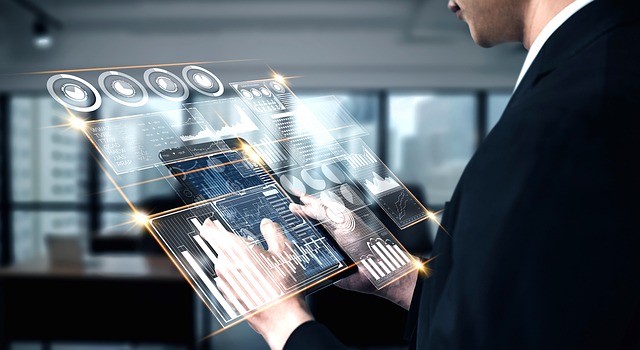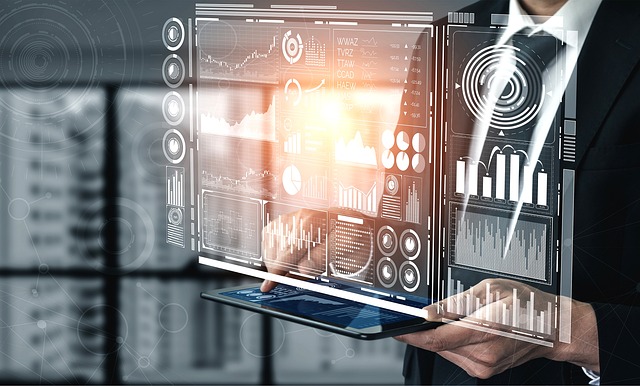Section 1: The Rise of AI in Business and Technology
In recent years, we have witnessed a rapid growth in the use of Artificial Intelligence (AI) in various industries, particularly in the business and technology sectors. AI, which is the simulation of human intelligence processes by machines, has revolutionized the way businesses operate and has become an integral part of our daily lives. From virtual assistants like Siri and Alexa to self-driving cars and personalized product recommendations, AI has made its way into nearly every aspect of our lives. But what makes AI so powerful? And how is it transforming the efficiency of businesses and technology? Let’s take a closer look.
Section 2: The Unstoppable Power of AI in Business
One of the main reasons for the widespread adoption of AI in business is its ability to streamline processes and increase efficiency. With AI, businesses can automate repetitive and time-consuming tasks, freeing up employees to focus on more strategic and creative work. For example, customer service chatbots powered by AI can handle a large volume of customer inquiries and provide quick and accurate responses, saving businesses time and resources. This not only improves the customer experience but also allows employees to focus on more complex tasks that require human skills such as problem-solving and critical thinking.
Moreover, AI has the power to analyze vast amounts of data and extract valuable insights that can inform business decisions. This is particularly useful in industries such as finance, where AI-powered algorithms can analyze market trends and make accurate predictions, helping businesses make better investment decisions. In addition, AI can also assist in risk management by identifying potential threats and providing solutions to mitigate them. This not only saves time and resources but also minimizes the chances of human error, making businesses more efficient and effective.
Section 3: The Impact of AI on Technology
The impact of AI on technology has been nothing short of revolutionary. With the rise of the Internet of Things (IoT), AI has become an essential component in the development of smart devices and systems. For instance, smart homes equipped with AI can learn and adapt to the habits and preferences of their occupants, making everyday tasks more efficient and convenient. From adjusting the thermostat to turning off lights, AI-powered smart homes can save energy and reduce costs for homeowners.
In addition, AI has played a significant role in the development of self-driving cars, which are set to transform the transportation industry. These cars use AI algorithms to analyze data from sensors and make decisions in real-time, making them safer and more efficient than human drivers. This technology has the potential to reduce accidents and traffic congestion, saving time and resources for both individuals and businesses.
Moreover, AI has also revolutionized the healthcare industry. With the help of AI-powered medical devices and systems, doctors can make more accurate diagnoses and provide personalized treatment plans for patients. This not only improves the efficiency of healthcare but also saves lives by detecting diseases at an early stage and providing timely treatment.
Section 4: The Future of AI in Business and Technology
The potential of AI is limitless, and its impact on business and technology is only going to increase in the future. As AI continues to evolve and improve, it will become even more integrated into our daily lives and transform the way we work and live. In fact, according to a report by McKinsey, AI has the potential to create an additional $13 trillion in economic value by 2030.
One of the most exciting developments in AI is the use of machine learning, which allows machines to learn from data and improve their performance without being explicitly programmed. This technology has already been used in various industries, from predicting consumer behavior to optimizing supply chain management. In the future, we can expect to see even more applications of machine learning, leading to increased efficiency and productivity in businesses.
Another area where AI is expected to make a significant impact is in the field of robotics. With advancements in AI and robotics, we can expect to see more robots performing complex tasks in various industries, from manufacturing to healthcare. This will not only increase efficiency but also reduce the risk of workplace accidents and injuries.
In conclusion, AI is revolutionizing the efficiency of businesses and technology, and its potential for growth and development is unstoppable. From streamlining processes and increasing productivity to transforming industries and improving our daily lives, the power of AI is undeniable. As we continue to embrace and integrate AI into our businesses and technology, we can expect to see even more remarkable advancements and improvements in the years to come.











